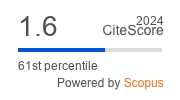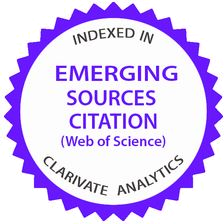Malaysian Journal of Mathematical Sciences, September 2025, Vol. 19, No. 3
Electrical MHD Flow via Stretching Sheet with Arrhenius Activation Energy utilizing Modified Buongiorno Model: The Optimization
Norzawary, N. H. A., Bakar, S. A., Pop, I., Wahid, N. S, Arifin, N. M. and Bachok, N.
Corresponding Email: nurhazirah.adilla@gmail.com
Received date: 20 December 2024
Accepted date: 13 April 2025
Abstract:
This research highlights a comprehensive mathematical model of Arrhenius activation energy and viscous dissipation impacts on electrically conductive magnetohydrodynamic (MHD) flow via shrinking sheet. The model utilizes a modified Buongiorno approach, which implies nano fluid dynamics factors such as thermophoresis and Brownian motion. In general description, electrical MHD describes fluid flow such as plasma or liquid metals that influenced by electric and magnetic fields. The Arrhenius activation energy effect then introduces a temperature-dependent reaction rate that typically modelled by an exponential function, considering its ability in increasing reaction rates as temperature rises. The mathematical derivation of this study involves a transformation of partial differential equations converting to ordinary differential equations, subjected to their respective boundary conditions, through a similarity transformation to simplifies complex interactions into a solvable framework. These equations are numerically solved employing bvp4c function in MATLAB to observe precise analysis of flow behaviour and heat transfer properties. The study conclude that the magnetic parameter and Brownian motion parameter reduce heat transfer, while the activation energy and temperature difference parameters amplify concentration profiles. The inclusion of the electric field parameter is shown to elevate the boundary layer flow and heat transfer rate. Based on the heat transfer analysis, an optimization by Response Surface Methodology (RSM) further analyses these solutions to identify an optimal combination of three critical parameters in order to maximize heat transfer rate. This optimization provides insights in efficient thermal management applications and supports advancements in cooling or energy sustainability.
Keywords: electrical MHD; Arrhenius activation energy; modified Buongiorno model; response surface methodology; stretching









